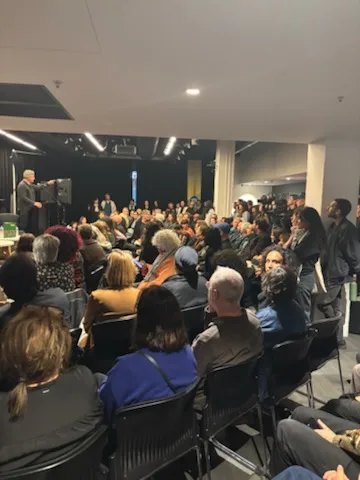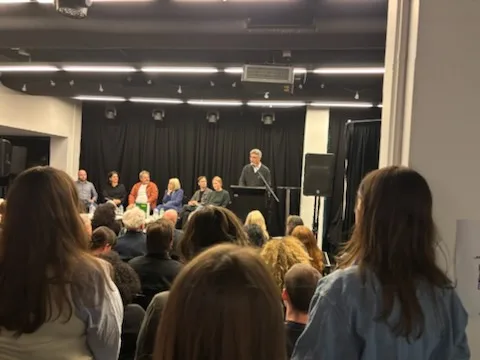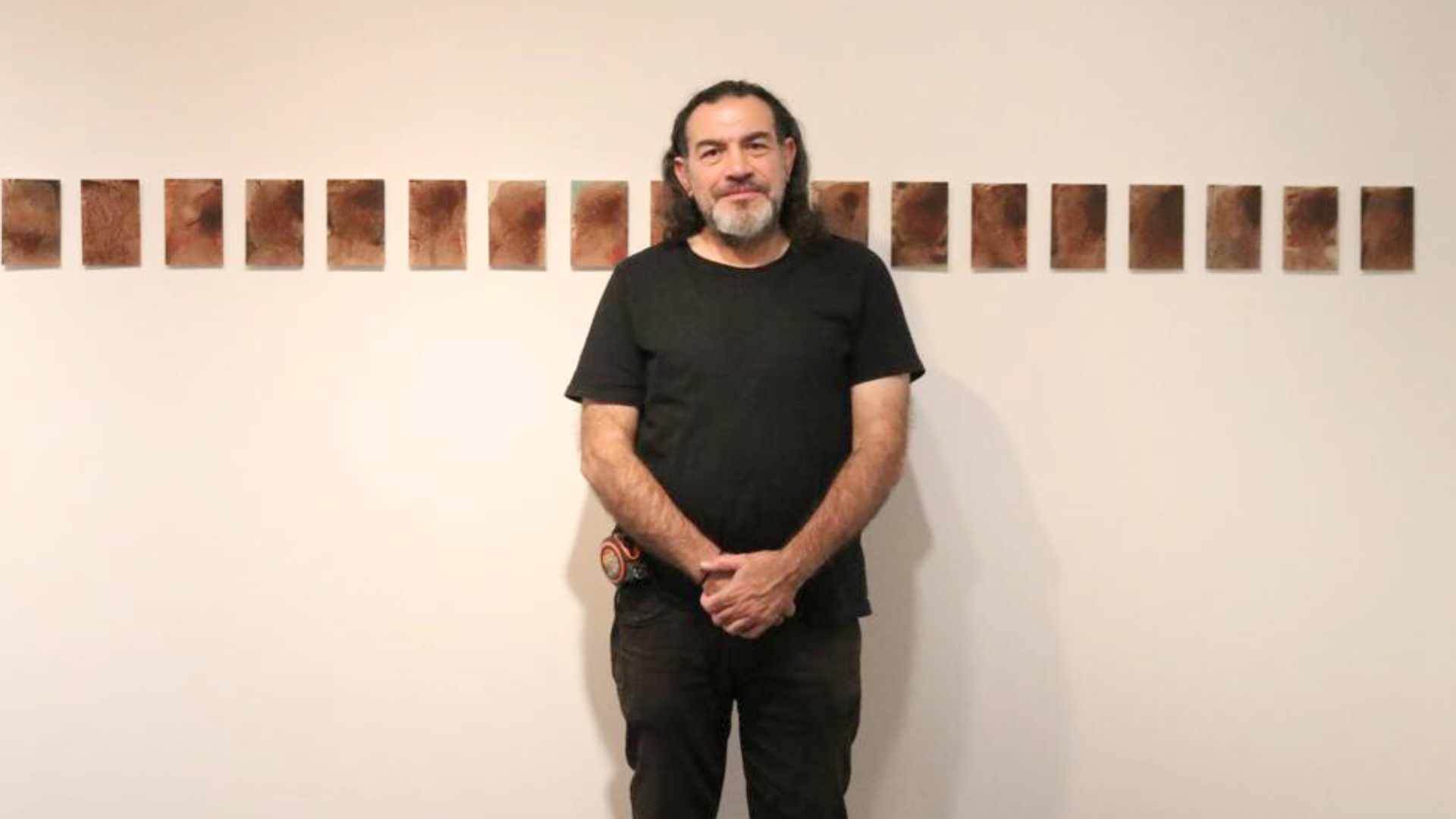On Monday, April 7, the Greek Centre hosted a public forum titled ‘Who’s Afraid of Khaled Sabsabi? Art, Fear, and the Collapse of Institutional Courage.’
Organised by the editorial collective Memo (Helen Hughes and Paris Lettau), the forum addressed the recent withdrawal of artist Khaled Sabsabi as Australia’s representative for the 2026 Venice Biennale. His removal followed media and political commentary surrounding earlier works that referenced 9/11 and Hezbollah leader Hassan Nasrallah. Soon after, Monash University also postponed an exhibition that included his work, Flat Earth, originally scheduled to open in May 2025.

Both decisions were framed as consultative and intended to preserve public confidence and social harmony. However, these developments have raised wider concerns about institutional decision-making, political influence in the arts, and the growing pressures of self-censorship.
The panel brought together key voices from across the arts, academia, and cultural institutions, including:
- Louise Adler – Arts board member and cultural leader
- Anthony Gardner – Art historian, 2025 Dobell Chair in Art History at ANU, and advisor for the Venice Biennale Australian Pavilion
- Ghassan Hage – Professor of anthropology and author of The Racial Politics of Australian Multiculturalism
- Josh Milani – Director of Milani Gallery, representing Khaled Sabsabi
- Azza Zein – Interdisciplinary artist and writer
- Moderated by Memo editors Helen Hughes and Paris Lettau
- Introduction by cultural theorist Nikos Papastergiadis, author of The Cosmos in Cosmopolitanism and John Berger and Me

In his opening remarks, Mr Papastergiadis highlighted concerns over transparency and accountability in institutional processes. He questioned whether the decisions to withdraw and postpone Sabsabi’s work were based on genuine consultation or on reactive responses to political pressure. He stressed the importance of public dialogue, peer-reviewed processes, and institutional transparency, drawing a parallel between democratic values and the governance of cultural institutions.
The forum aimed to create space for nuanced discussion and to reflect on how institutions might better support freedom of expression while navigating complex political and social climates.
Over 800 people were on the waitlist for the event, underscoring the high level of public interest in the topic. A video recording of the forum is in preparation for wider access.
